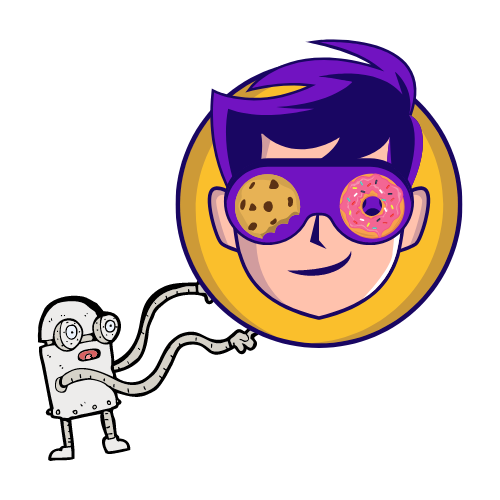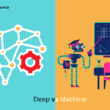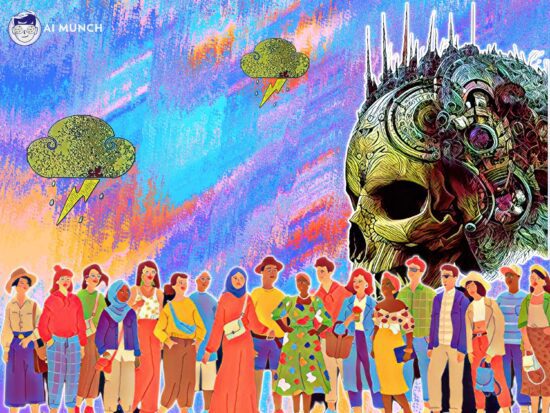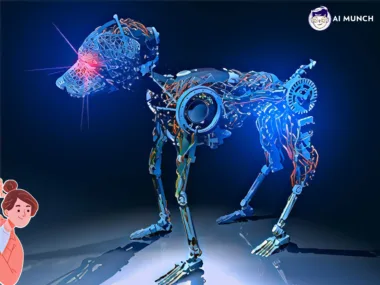I. Introduction
The impact of AI on society is something the world cannot ignore. That’s why many debates are raging about AI and the future of human society. Technology has significantly advanced thanks to artificial intelligence (AI), but AI can also potentially affect human society negatively. AI is used in almost every part of modern life, from virtual assistants like Siri and Alexa to driverless cars and face recognition software. Concerns about ethics have been raised by the development of super-smart machines that could take over and destroy humanity. It is important to think ahead about AI and the future of human society, and to be ready for things that don’t go as planned.
A brief overview of the current state of AI in society:
We have already discussed the dangers of AI. One of the most discussed topics is AI and the future of human society. AI is used in almost every part of modern life, from driverless cars and face recognition software to virtual assistants like Siri and Alexa. Healthcare, finance, and manufacturing are just a few of the many industries that are using it to make their work more efficient and get more done. As the field of AI has grown, people have started to worry about the bad things that might happen as it gets smarter.
Thesis statement about the Negative Impact of AI on Society:
Like it or not, AI and the future of human society will surely coexist. Artificial intelligence (AI) can potentially have positive and harmful effects on human society. This includes the economic, social, ethical, and political spheres. This article will discuss the many ways in which AI might have a harmful effect on human society, as well as the significance of ethical AI research and development.
II. Economic Impact of AI
Loss of jobs due to automation:
One of AI’s large-scale economic effects is the threat of massive job loss due to increased automation. Better machines and algorithms are slowly taking over jobs that humans used to do. Many people may lose their employment as a result, particularly in sectors like manufacturing and transportation that are amenable to automation.
Widening income inequality:
This is one of the main reasons we are talking about the negative impact of AI on society. Income inequality is an important part of the negative impact of AI on society. When jobs are lost because of automation, income inequality can grow because those who can adapt to the new technology will do better while those who lose their jobs may have a hard time finding new ones. Also, as automation makes companies more productive and efficient, they may make more money, which may not be passed on to workers in the form of higher wages.
Disruption of industries and market:
AI can affect the entire market or industry. Self-driving cars, for instance, may alter the transportation sector, while online marketplaces like Amazon may pose a threat to the traditional retail sector. These changes might cause ripple impacts in other sectors, such as the insurance, logistics, and real estate markets. AI can disrupt markets because it allows for new types of competition, such as AI-driven hedge funds, which can compete more effectively than human-driven hedge funds.
To sum up, AI’s effect on the economy is like a double-edged sword. It could make businesses more efficient and productive, but it could also cause people to lose their jobs, have more income inequality, and disrupt markets. So, the economic effects of AI should be taken into account when making decisions about how to use it.
III. Social Impact of AI
Disruption of communication and relationships:
When AI becomes more popular, it will alter how we connect socially and verbally. Widespread usage of personal assistants like Siri and Alexa may cause individuals to rely less on in-person interaction and more on digital media. It’s also possible that virtual assistants and chatbots powered by artificial intelligence will replace real customer support representatives, reducing human engagement opportunities.
Decrease in empathy and emotional intelligence:
As people rely more on AI tools for social interaction, their empathy and intelligence will go down. That’s because machines still can’t match the finer details of human communication and connection. For example, how we show and read each other’s emotions through facial expressions and tone of voice.
Psychological effects of relying on technology:
One of the top bad impacts of AI on humans is Psychological. There are also mental repercussions of overdoing it with technology. Isolation and being cut off from others are two possible outcomes. The potential for humans to become less autonomous and more reliant on technology to guide their decision-making, is another concern.
The social effects of AI are varied and challenging to predict. AI has the potential to both enhance and disrupt human interaction and communication. AI can also make it harder for people to have empathy and emotional intelligence, which can have psychological effects. As the use of AI grows in everyday life, it will be important to weigh the pros and cons of the technology in light of how it affects society.
IV. Ethical Impact of AI
Bias and discrimination in AI systems:
One of the major ethical concerns surrounding AI is bias and discrimination. AI systems are trained on data sets. if the data sets are not diverse or representative, the AI system may continue or even enhance the biases that are in the data. This issue can lead to unfair treatment of minorities and women in areas like hiring, lending, and the criminal justice system.
Privacy concerns:
Privacy and security issues may arise as AI systems become more sophisticated since they have access to more sensitive information. Concerns regarding civil liberties and the possibility of data misuse by governments or private enterprises can also be raised by the application of AI in areas like surveillance and facial recognition.
Control and autonomy in decision-making:
When it comes to making significant choices, AI systems are quickly catching up to human-level performance. This raises the question of how much discretion and freedom AI systems should be granted, and whose fault it is if those decisions have unintended results. Further, it may be difficult to understand how and why a choice was reached when AI is used. Therefore, there may also be concerns regarding accountability and transparency.
The repercussions of AI on ethics are significant and diverse. Artificial intelligence (AI) has the potential to accentuate existing biases, invade people’s privacy, and reduce their agency when making decisions. It is crucial to consider these ethical consequences throughout the development and implementation process to guarantee that AI is developed and used ethically and responsibly.
V. Political Impact of AI
The concentration of power in the hands of a few tech companies:
As AI develops and becomes more embedded in society, it will consolidate power among a small number of tech giants. This is because data, computing power, and knowledge are all important for making and using AI. A small group of large tech companies may try to keep these resources to themselves. When a few companies have all the power in a market, there isn’t much competition, which can hurt both creativity and consumer choice.
Lack of regulation and oversight:
Since AI is still in its infancy, there is nothing in the way of monitoring or legislation to guide its progress. Problems like bias and discrimination in AI systems and privacy concerns might result from a lack of regulation. Lack of monitoring can also make it hard to hold organizations or individuals accountable for unintended repercussions of AI use.
National security and defense implications:
As AI becomes more advanced, it has the potential to impact national security and defense. For example, using AI in weapons systems can raise ethical concerns, and the development of AI by other countries can lead to a military arms race. Using AI for surveillance and cyber security can also make people worried about their privacy and civil rights.
Overall, the political impact of AI is significant and far-reaching. AI can put a lot of power in the hands of a few tech companies. This can be bad if there aren’t enough rules. it can also affect national security and defense. It’s important to think about these political effects as AI is built and used, and to make sure that AI is created and utilized in a way that benefits the public.
VI. Conclusion
Summary of key points:
AI and the future of human society are both in our hands. We cannot ignore the impact of AI on society or humans. This article examined how AI can hurt society, including the economic, social, ethical, and political consequences. AI’s economic effects include the loss of jobs due to automation, widening income gaps, and disrupting markets and industries. AI’s effects on society include problems with communication and relationships, less empathy and emotional intelligence, and the psychological effects of becoming too dependent on technology. Concerns about privacy, control, and autonomy in decision-making, and bias and discrimination in AI systems are some of the ethical effects of AI. AI’s impact on politics includes putting too much power in the hands of a few tech companies, a lack of rules and oversight, and an impact on national security and defence.
Call to action for responsible development and implementation of AI:
Understanding the advantages and disadvantages of AI is crucial for ensuring that it is developed and used responsibly and ethically. This involves thinking about how AI will affect society and trying to lessen the harmful effects if they happen. Assuring that AI is overseen and regulated appropriately, open, responsible, and fair is also part of this. Investments should help those who may be affected by job loss due to automation in retraining and education initiatives.
Acknowledge the potential benefits and drawbacks of AI:
Even though AI could have positive effects on society, such as increased efficiency and productivity, we must also be aware of its risks. The public’s best interests must be considered during AI development and implementation.
FAQs about The Negative Impact of Artificial Intelligence on Human Society
AI has a lot of positive effects on society, but it also has the potential to hurt people. This includes the loss of jobs due to automation, the widening gap between rich and poor, and the disruption of markets and industries. Social effects include trouble with communication and relationships, less empathy and less emotional intelligence. This also includes the psychological effects of being too dependent on technology. Concerns about privacy, bias, and discrimination in AI systems, control, and freedom in decision-making are all ethical effects. Some of the political effects are that a few tech companies have a lot of power. There aren’t enough rules and inspections, and so there are effects on national security and defence.
This is one of the concerns when we talk about ai and the future of human society. Yes, AI may cause employment loss as a result of automation. This negative impact of AI on society is currently under huge debate. As technology improves, machines and algorithms will take over more and more human jobs. Many people can lose their employment due to this, especially in easily automatable sectors like manufacturing and transportation.
AI may serve to reinforce preexisting prejudices and sexism. Since AI is educated using data, it is susceptible to reflecting and amplifying any inherent biases in that data; if it is not diverse or representative. This can lead to discrimination in the workplace, the financing system; and the court system against particular groups, such as minorities and women.
In other words, How can we avoid the negative impact of AI on society? Several things can be done to ensure AI’s ethical and socially responsible development and implementation. This includes considering AI’s effects on society and taking measures to mitigate any negative consequences. Ensuring that AI is transparent, accountable, and fair; putting proper oversight and regulation in place. Investing in retraining and education programmes to assist those who may be impacted by job loss due to automation. Moreover, we should think about the ethical and social implications of AI as well.
When we talk about the negative impact of AI on human society, How can we ignore our defence and security? Other countries’ development of artificial intelligence can lead to a military arms race. The application of AI in weapons systems might pose ethical problems. Concerns about privacy and civil liberties are not limited to applications of AI in areas like surveillance and cyber security. Now more than ever, it is essential to have suitable rules and monitoring in place to ensure that the use of AI in national security and the military is in line with international ethical standards and regulations as the field rapidly advances.
Do you want to read more? Check out these articles.











Hey very nice blog!! Man .. Beautiful .. Amazing ..
I’ll bookmark your web site and take the
feeds also? I’m glad to search out numerous helpful information right here in the publish, we’d
like develop more strategies on this regard, thank you for sharing.
. . . . .